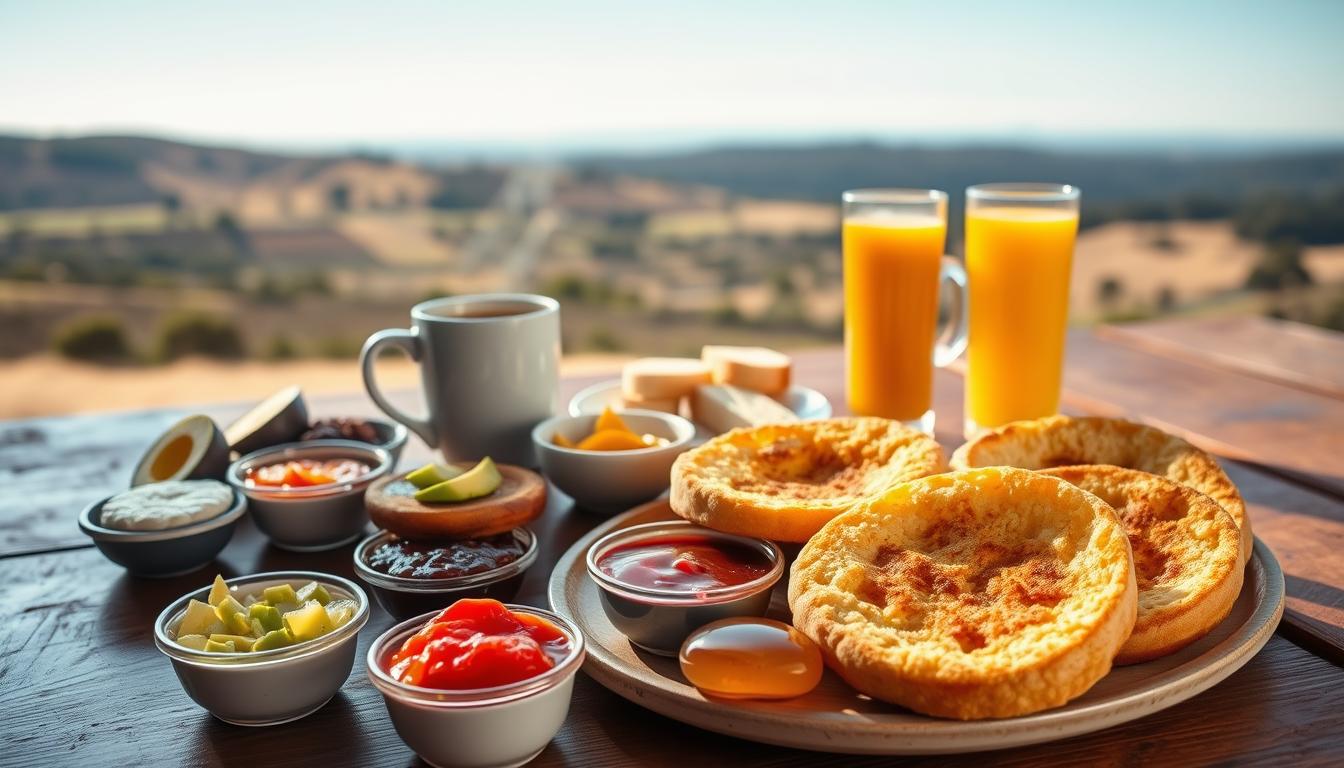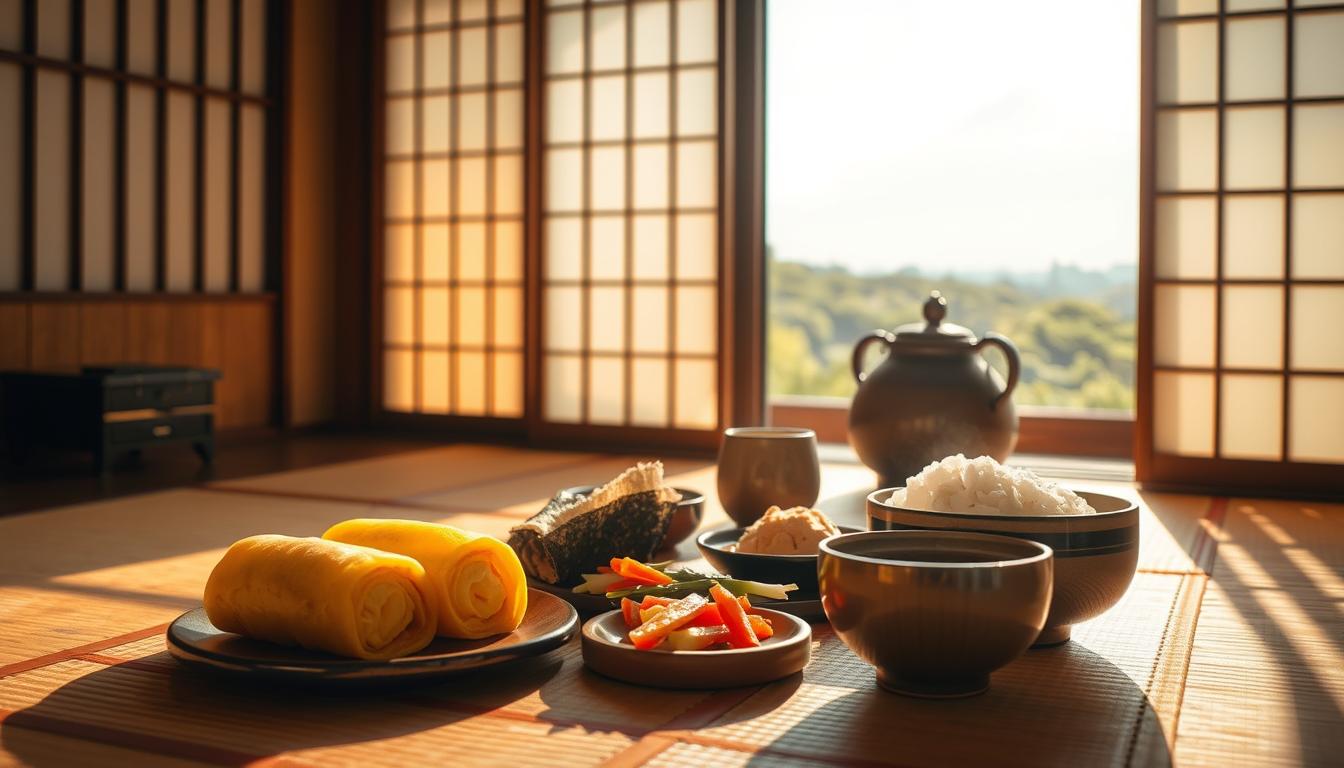Experience the Best Traditional Moroccan Berber Breakfast
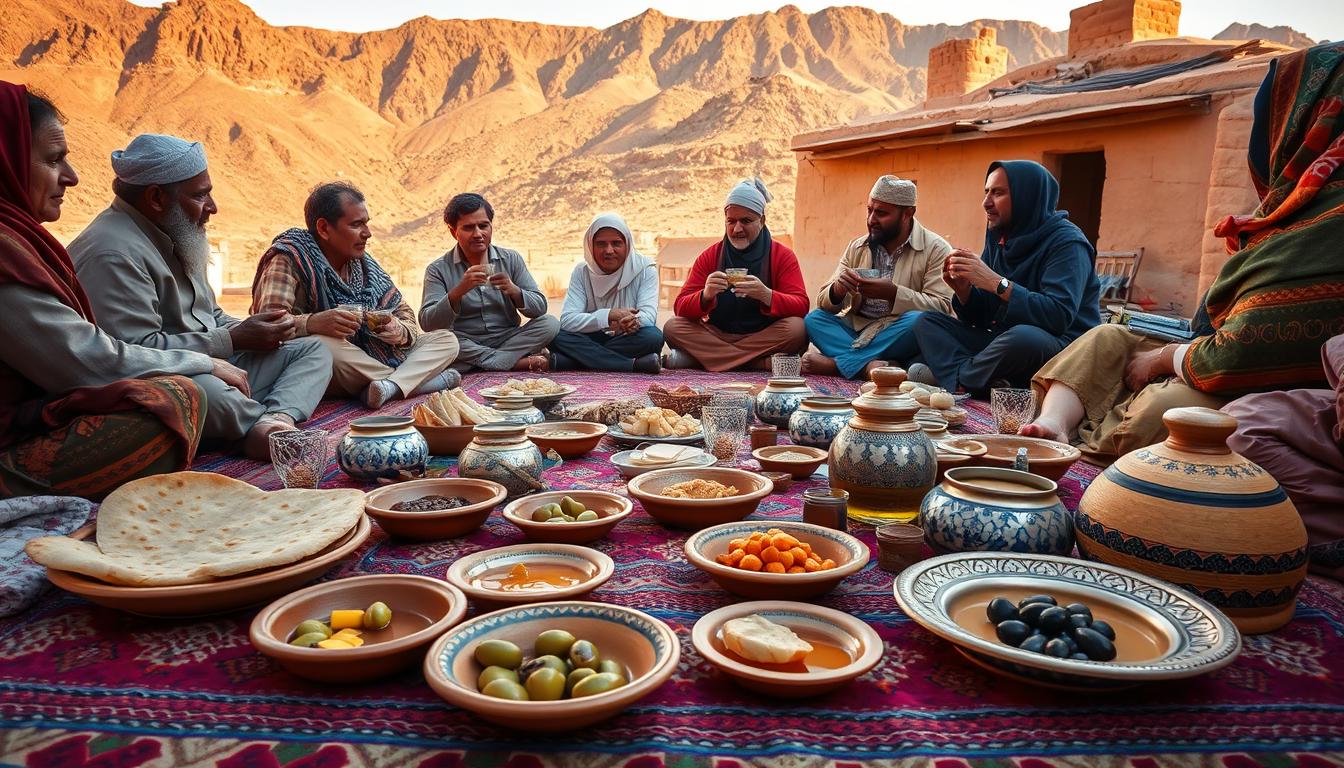
Experience the Best Traditional Moroccan Berber Breakfast
Imagine starting your day with a culinary journey through the Atlas mountains, where the indigenous Berber people have perfected a breakfast tradition that seamlessly blends nutrition, flavor, and cultural heritage.
The Berber cuisine, with its diverse influences from North Africa, offers a unique gastronomic experience. As you savor the flavors of this time-honored tradition, you’ll discover the significance of this meal in Berber culture.
This traditional morning meal is more than just a meal; it’s a window into Morocco’s rich cultural heritage. The combination of fresh ingredients and aromatic spices creates a truly unforgettable experience.
Key Takeaways
- Discover the authentic flavors and cultural significance of a traditional Berber breakfast.
- Learn about the unique combination of ingredients and spices that make this meal special.
- Understand the importance of this breakfast tradition in Berber culture.
- Explore the cultural context that defines this remarkable morning meal.
- Experience the rich heritage of Morocco through its cuisine.
The Rich Heritage of Berber Breakfast Traditions
The Berber breakfast traditions are deeply rooted in the rich cultural heritage of Morocco’s indigenous people. In Berber culture, hospitality is paramount, and breakfast is often at the center of this hospitality.
Who Are the Berbers and Their Culinary Legacy
The Berbers, also known as the Amazigh, are the indigenous people of Morocco. Their culinary legacy is characterized by traditional dishes that are both nourishing and flavorful. As “the heart of Berber cuisine lies in its simplicity and use of local ingredients”, their breakfast traditions reflect this simplicity and emphasis on local produce.
The Cultural Significance of Breakfast in Berber Communities
Breakfast in Berber communities is a social institution that strengthens family and community bonds. Morning meals are communal affairs where family members gather around a shared tray, emphasizing the collective nature of Berber society. The act of sharing breakfast with guests is considered a sacred form of hospitality, reflecting their generous spirit and welcoming nature.
The Essential Components of a Traditional Moroccan Berber Breakfast
A traditional Moroccan Berber breakfast is characterized by its simplicity and rich flavors, deeply rooted in the country’s cultural heritage. You can experience the authentic taste of Morocco by exploring the essential components that make up this meal.
Freshly Baked Khobz: The Heart of the Meal
Freshly baked Khobz, a traditional Moroccan bread, is the cornerstone of a Berber breakfast. You will find that this crusty bread is not just a staple but a symbol of hospitality and community. It’s typically baked in traditional ovens and served hot.
Amlou: Morocco’s Treasured Spread
Amlou, a rich and creamy spread made from almonds, honey, and argan oil, is another vital component. You can enjoy it as a delicious accompaniment to Khobz, providing a sweet and nutty flavor that complements the meal perfectly.
Olive Oil, Olives, and Honey: The Berber Breakfast Staples
On a traditional Berber breakfast tray, you’ll typically find olive oil, green olives, honey, and black olives. These ingredients are not just flavorful but also represent the agricultural bounty of Morocco. High-quality olive oil is used liberally, providing healthy fats and a fruity flavor. Both green and black olives add a briny contrast, while local honey brings natural sweetness and is believed to have medicinal properties.
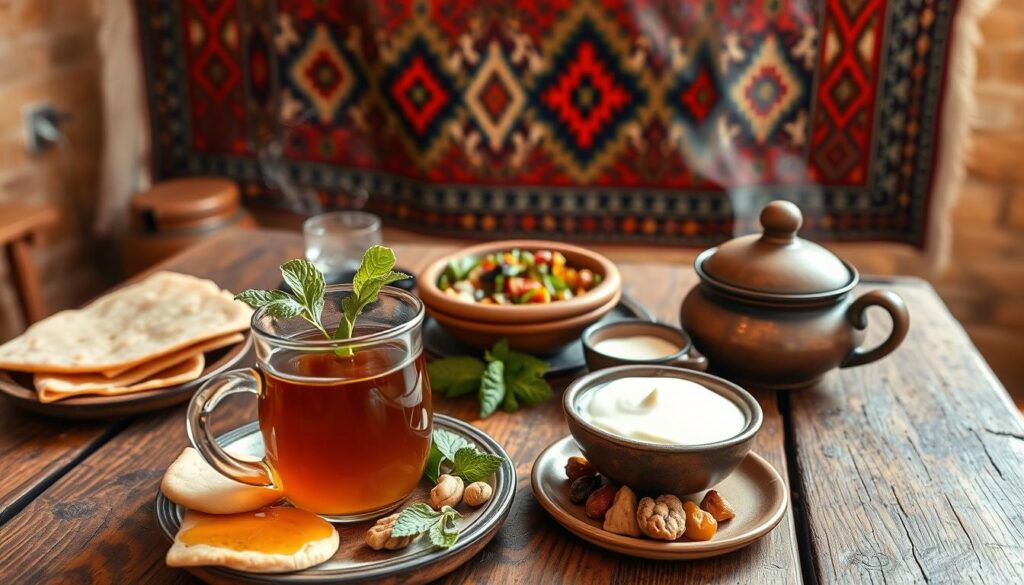
These staples—olive oil, olives, and honey—create a perfect balance of flavors that has remained unchanged for generations in Berber breakfast traditions. You can appreciate the simplicity and richness of this meal by understanding the cultural significance of these ingredients.
The Best Traditional Moroccan Berber Breakfast Dishes
As you explore the world of Berber breakfasts, you’ll discover a rich tapestry of flavors and ingredients that are deeply rooted in Moroccan culture. A traditional Berber breakfast is a vibrant and diverse meal that includes a variety of dishes, each with its own unique characteristics.
Berber Breakfast Eggs: A Flavorful Morning Delight
Eggs are a staple in many breakfasts around the world, and the Berber breakfast is no exception. Berber breakfast eggs are often prepared with a mix of spices and ingredients that give them a distinct flavor. You can enjoy them scrambled, fried, or made into an omelette with local ingredients like olives, tomatoes, and spices.
The use of fresh herbs and spices adds a burst of flavor to the eggs, making them a delightful start to the day. Whether you prefer your eggs simple or loaded with ingredients, the Berber breakfast has something to offer.
Traditional Accompaniments and Side Dishes
Beyond the main egg dishes, a complete Berber breakfast includes a variety of small plates and accompaniments that add texture and nutritional diversity to the meal. You can expect to find a selection of nuts, roasted chickpeas, and homemade dairy products like fresh cheese or “lben” (buttermilk).
| Accompaniment | Description | Nutritional Benefit |
|---|---|---|
| Nuts and Roasted Chickpeas | Provide a crunchy snack, often seasoned with spices | Rich in protein and healthy fats |
| Amlou | A traditional almond paste made with almonds, honey, and oil | High in healthy fats and antioxidants |
| Homemade Dairy Products | Fresh cheese or “lben” (buttermilk) for a creamy contrast | Offers probiotic benefits |
These accompaniments not only add variety to the meal but also provide a range of nutritional benefits. Preserved lemons and pickled vegetables might appear as tangy accompaniments that stimulate the appetite and aid digestion. Fresh seasonal fruits round out the breakfast spread with natural sweetness and vitamins.
How to Prepare an Authentic Berber Breakfast at Home
You can experience the rich culinary heritage of the Berber community by preparing their traditional breakfast at home. This involves understanding the essential ingredients and following a simple yet flavorful recipe.
Essential Ingredients and Where to Find Them
To make an authentic Berber omelette, you will need ingredients such as chopped red onion, garlic, green and red capsicum, turmeric, cumin, ground ginger, paprika, grated tomatoes, eggs, olive oil, and fresh herbs. These ingredients can be found in most supermarkets or Middle Eastern grocery stores. Freshness and quality are key to achieving the rich flavors characteristic of Berber cuisine.
Here’s a quick overview of the ingredients and their quantities:
| Ingredient | Quantity |
|---|---|
| Red Onion | 1 small |
| Garlic | 2 cloves |
| Capsicum (green and red) | 1 small each |
| Turmeric | ½ tsp |
| Cumin | 1 tsp |
| Ground Ginger | 1 tsp |
| Paprika | 2 tsp |
| Tomatoes | 4, grated |
| Eggs | 4 |
| Olive Oil | As needed |
| Fresh Herbs | For serving |
Step-by-Step Recipe for Berber Omelette
Begin by heating olive oil in a traditional tagine or a deep skillet. Sauté finely chopped onions and garlic until they become fragrant and translucent. Add chopped capsicum and cook for a minute. Then, add the spices, salt, and pepper, and fry for 2 minutes. Next, add grated tomatoes, cover, and simmer for 10-15 minutes. Beat the eggs with salt, pour into the sauce, and cook until the eggs are set. Finish with fresh herbs and a squeeze of lemon juice. Serve with fresh khobz for an authentic experience.
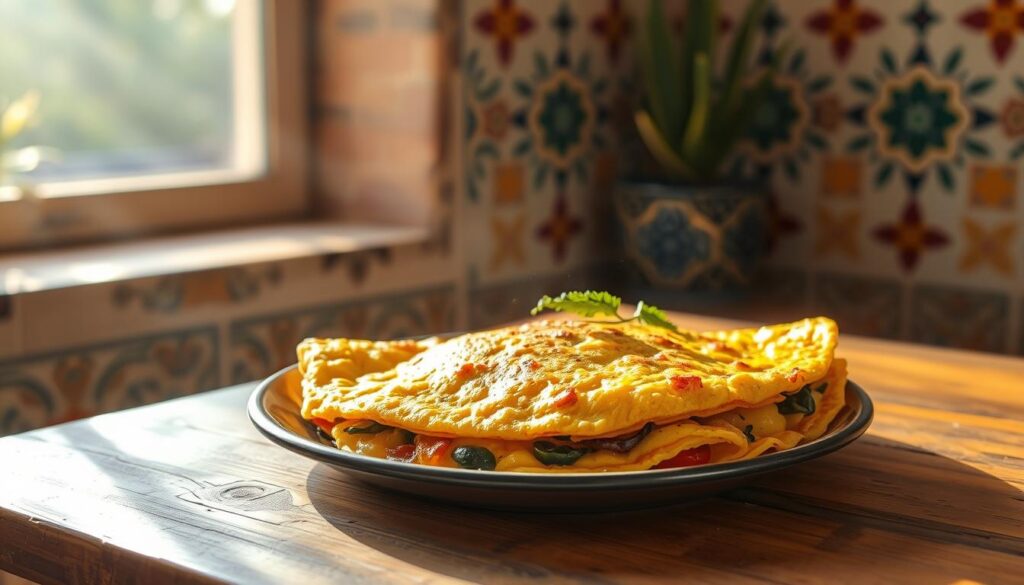
The Berber Breakfast Experience: Beyond the Food
In Berber communities, breakfast is a cherished tradition that embodies the spirit of hospitality and togetherness. It’s an experience that transcends the meal itself, inviting you to partake in a rich cultural heritage.
The Ritual of Moroccan Mint Tea
Moroccan mint tea is an integral part of the Berber breakfast experience. The preparation and serving of this tea are considered an art form, symbolizing hospitality and respect for guests. The tea is typically served in small glasses and is poured from a height to create a frothy top, adding to the ceremonial ambiance.
The significance of mint tea lies not only in its refreshing taste but also in its role as a social lubricant, encouraging conversation and warmth among those gathered.
Communal Dining and Hospitality in Berber Culture
Communal dining is at the heart of Berber breakfast traditions. Meals are served on a low round table, with diners seated on cushions on the floor, fostering an intimate atmosphere that encourages connection and conversation.
| Aspect | Description | Significance |
|---|---|---|
| Seating Arrangement | Dining on cushions around a low table | Encourages communal interaction |
| Handwashing Ritual | Using a pitcher and basin before and after meals | Signifies respect and cleanliness |
| Hospitality | Accepting food and tea graciously | Shows appreciation for the host’s generosity |
These elements combined create a unique and enriching experience, showcasing the warmth and generosity inherent in Berber culture.
Conclusion: Embracing the Flavors of Morocco’s Indigenous Cuisine
The Berber breakfast offers a unique blend of flavors and cultural significance that can enrich your culinary experiences and broaden your appreciation for Morocco’s indigenous cuisine. By combining freshly baked bread with nutrient-rich olive oil, you can create a delicious and healthy meal.
Preparing elements of this ancient breakfast tradition takes just 30 minutes, allowing you to bring the authentic tastes of Morocco’s Atlas Mountains to your table. This approach to breakfast offers a healthier way of starting your day, emphasizing whole grains, healthy fats, and protein-rich components.
Understanding the cultural context of these morning meals provides a deeper appreciation for how food connects us to traditions, landscapes, and communities worldwide. Whether you’re planning a trip to Morocco or expanding your culinary horizons, embracing Berber breakfast traditions is a great way to experience one of the world’s most ancient and vibrant food cultures.

